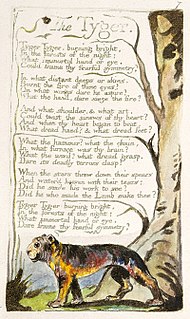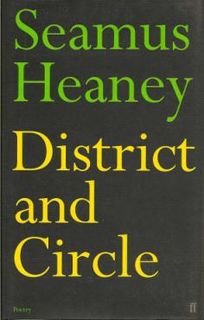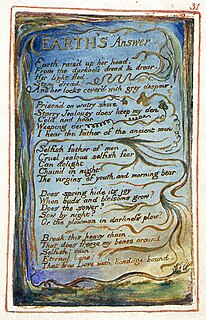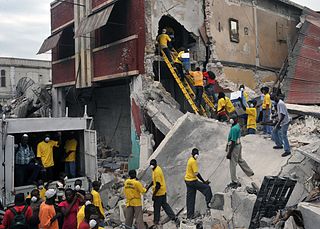
Seamus Justin Heaney was an Irish poet, playwright and translator. He received the 1995 Nobel Prize in Literature. Among his best-known works is Death of a Naturalist (1966), his first major published volume. Heaney was recognised as one of the principal contributors to poetry during his lifetime. American poet Robert Lowell described him as "the most important Irish poet since Yeats", and many others, including the academic John Sutherland, have said that he was "the greatest poet of our age". Robert Pinsky has stated that "with his wonderful gift of eye and ear Heaney has the gift of the story-teller." Upon his death in 2013, The Independent described him as "probably the best-known poet in the world".

Robert Bly is an American poet, essayist, activist and leader of the mythopoetic men's movement. His best-known book is Iron John: A Book About Men (1990), a key text of the mythopoetic men's movement, which spent 62 weeks on The New York Times Best Seller list. He won the 1968 National Book Award for Poetry for his book The Light Around the Body.

Austin Clarke, born in 83 Manor Street, Stoneybatter, Dublin, was one of the leading Irish poets of the generation after W. B. Yeats. He also wrote plays, novels and memoirs. Clarke's main contribution to Irish poetry was the rigour with which he used technical means borrowed from classical Irish language poetry when writing in English.
Urdu poetry is a rich tradition of poetry and has many different forms. Today, it is an important part of the cultures of South Asia. Meer, Dard, Ghalib, Anees, Daag Dehlvi, Dabeer, Iqbal, Zauq, Josh, Akbar, Jigar, Faiz, Firaq, Shakeb Jalali, Ahmad Nadeem Qasmi, Shair, Mohsin, Faraz, Faizi and Firaq are among the greatest poets of Urdu. The language of Urdu got its pinnacle under the British Raj, and it received official status. All famous writers of Urdu language including Ghalib and Iqbal were given British scholarships. Following the Partition of India in 1947, it found major poets and scholars were divided along the nationalistic lines. However, Urdu poetry is cherished in both the nations. Both the Muslims and Hindus from across the border continue the tradition.
Pat Boran is an Irish poet. Born in Portlaoise, Boran has lived in Dublin for a number of years. He is the publisher of the Dedalus Press which specialises in contemporary poetry from Ireland, and international poetry in English-language translation, and was until 2007 Programme Director of the annual Dublin Writers Festival. Currently he is the presenter of "The Poetry Programme", a weekly half-hour poetry programme on RTÉ Radio 1. He won the Patrick Kavanagh Poetry Award in 1989 and in 2008 received the Lawrence O'Shaughnessy Award for Irish Poetry from the University of St. Thomas, St. Paul, MN.
Pity is a sympathetic sorrow evoked by the suffering of others, and is used in a comparable sense to compassion, condolence or empathy - the word deriving from the Latin pietās.

"The Tyger" is a poem by the English poet William Blake published in 1794 as part of the Songs of Experience collection. Literary critic Alfred Kazin calls it "the most famous of his poems", and The Cambridge Companion to William Blake says it is "the most anthologized poem in English". It is one of Blake's most reinterpreted and arranged works.
Martian poetry was a minor movement in British poetry in the late 1970s and early 1980s, in which everyday things and human behaviour are described in a strange way, as if by a visiting Martian who does not understand them. Poets most closely associated with it are Craig Raine and Christopher Reid.
Dorothy Kathleen May Livesay, was a Canadian poet who twice won the Governor General's Award in the 1940s, and was "senior woman writer in Canada" during the 1970s and 1980s.
Thomas McCarthy is an Irish poet, novelist, and critic, born in Cappoquin, Co. Waterford, Ireland. He attended University College Cork where he was part of a resurgence of literary activity under the inspiration of John Montague. Among his contemporaries, described by Thomas Dillon Redshaw as "that remarkable generation," there were Theo Dorgan poet and memoirist, Sean Dunne, poet, Greg Delanty, poet, Maurice Riordan poet and William Wall, novelist and poet. McCarthy edited, at various times, The Cork Review and Poetry Ireland Review. He has published seven collections of poetry with Anvil Press Poetry, London, including The Sorrow Garden, The Lost Province, Mr Dineen's Careful Parade, The Last Geraldine Officer and Merchant Prince, described as "an ambitious and substantive book". The main themes of his poetry are Southern Irish politics, love and memory. He is also the author of two novels; Without Power and Asya and Christine. He is married with two children and lives in Cork City where he works in the City Libraries. He won the Patrick Kavanagh Poetry Award in 1977. His monograph "Rising from the Ashes" tells the story of the burning of the Carnegie Free Library in Cork City by the Black and Tans in 1920 and the subsequent efforts to rebuild the collection with the help of donors from all over the world.

The Forward Prizes for Poetry are major British awards for poetry, presented annually at a public ceremony in London. They were founded in 1992 by William Sieghart with the aim of celebrating excellence in poetry and increasing its audience. The prizes do this by identifying and honouring talent: collections published in the UK and Ireland over the course of the previous year are eligible, as are single poems nominated by journal editors or prize organisers. Each year, works shortlisted for the prizes — plus those highly commended by the judges — are collected in the Forward Book of Poetry.

Bustan is a book of poetry by the Persian poet Saadi, completed in 1257 and dedicated to the Salghurid Atabeg Sa'd I or Sa'd II.
Juliana Spahr is an American poet, critic, and editor. She is the recipient of the 2009 Hardison Poetry Prize awarded by the Folger Shakespeare Library to honor a U.S. poet whose art and teaching demonstrate great imagination and daring.
In Scottish folklore the fachan is a monster or giant described by John Francis Campbell in Popular Tales of the West Highlands as having a single eye in the middle of its face, a single hand protruding from its chest instead of arms, and a single leg emerging from its central axis. It has a single tuft of hair on the top of its head, regarding which Campbell says "it were easier to take a mountain from the root than to bend that tuft." Campbell draws attention to the possible influence of creatures from Arabic tradition such as the Nesnas or Shikk, described as "half of a human being" and hopping about on one leg with great agility.

District and Circle is a poetry collection by Seamus Heaney, who received the 1995 Nobel Prize in Literature. It was published in 2006 and won the 2006 T. S. Eliot Prize, the most prestigious poetry award in the UK. The collection also won the Irish Times "Poetry Now Award".

Nathalie Handal is an award-winning poet, writer, and playwright.

Earth's Answer is a poem by William Blake within his larger collection called Songs of Innocence and of Experience. It is the response to the previous poem in The Songs of Experience-- Introduction . In the Introduction, the bard asks the Earth to wake up and claim ownership. In this poem, the feminine Earth responds.

Myosin light chain kinase 2 also known as MYLK2 is an enzyme which in humans is encoded by the MYLK2 gene.
The Poetry Now Award is an annual literary prize presented for the best single volume of poetry by an Irish poet. The €5,000 award was first given in 2005 and is presented during annual Dún Laoghaire–Rathdown poetry festivals. From 2005 to 2011, it was bestowed during the Poetry Now international poetry festival which was held in March or April each year. In 2012 and 2013, the award was given during the Mountains to Sea dlr Book Festival, in September. The award is sponsored by The Irish Times newspaper.












